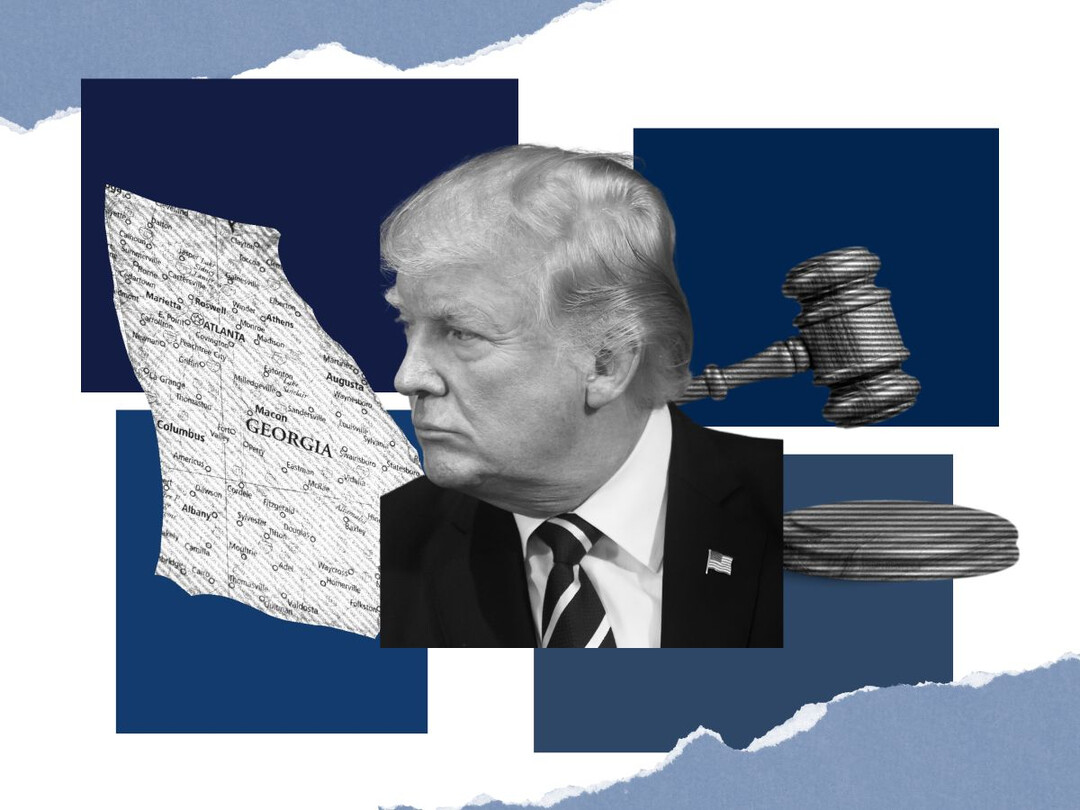
Officials from 19 Democratic-led states, including Michigan, have filed a constitutional lawsuit against President Donald Trump's executive order related to elections, strongly criticizing it as an unconstitutional act that clearly infringes upon the states' authority to administer their own elections.
The lawsuit, the fourth legal challenge to Trump's executive order that took effect last week and seeks to reshape election procedures nationwide, aims to halt the implementation of key provisions. These include the requirement for proof of citizenship when registering to vote and the demand that mail-in ballots arrive by election day.
"The President has no power to do this — none," the state attorneys general argued in a court filing. "The Election Executive Order is unconstitutional, antidemocratic, and un-American."
In response, White House spokesperson Harrison Fields said Friday that the citizenship proof requirement was "common sense" and that the Democrats' opposition was "absurd." In a statement, he emphasized that "the Trump Administration is committed to free, fair, and honest elections, and asking this basic question is essential to our constitutional republic."
Trump's executive order claims that the U.S. has "failed to implement basic and essential election safeguards," but election officials counter that recent elections have been among the most secure in American history. No widespread signs of fraud were found in the 2020 presidential election, including when Trump lost to Democrat Joe Biden.
The executive order is the culmination of Trump's long-standing grievances about the way elections are conducted in the United States. Following his victory in the 2016 election, Trump claimed that his popular vote total was significantly lower due to "millions of illegal votes," and after losing the 2020 election, he asserted that it was "rigged" with widespread voter fraud and voting machine manipulation.
While Trump argues that his executive order will protect elections by preventing non-citizens from voting illegally, multiple studies and state government investigations show that illegal voting is exceptionally rare.
Some Republican state election officials have welcomed the executive order, suggesting it could deter voter fraud and provide federal data access for voter roll maintenance.
The executive order also directs states to exclude any mail-in ballots that arrive after election day, threatening to withhold federal funding for non-compliance. Some states count ballots postmarked by election day or allow voters to correct minor errors on their ballots.
The lawsuit argues that forcing states to make these changes violates the Constitution, which grants states broad authority to set election rules. The Constitution stipulates that states determine the "times, places and manner of holding elections."
While Congress has the power to "make or alter" election regulations, at least for federal elections, the Constitution makes no mention of presidential authority over election administration.
Michigan Attorney General Dana Nessel contends that the executive order is unconstitutional and designed to obstruct elections. "The President has no authority to dictate or control our state's voting laws, which are enshrined in our state constitution," she stated. "The White House cannot undermine the will and rights of Michigan residents or prevent them from legally casting their ballots under our state's election laws."
New York Attorney General Letitia James echoed Nessel's sentiments, saying, "We are a democracy, not a monarchy, and this executive order is an authoritarian power grab."
California Attorney General Rob Bonta accused Trump's executive order of attempting to impose "sweeping voting restrictions" nationwide and disenfranchise voters.
Nevada's attorney general and secretary of state, both from a presidential battleground state, asserted that Nevada's elections are fair, secure, and transparent, opposing the president's attempt to interfere with how they are run. Attorney General Aaron Ford praised Nevada's automatic voter registration and mail-in ballot distribution system, stating, "This order is not only facially unconstitutional and unlawful, it is unnecessary."
The lawsuit was filed in the U.S. District Court for the District of Massachusetts by the attorneys general of 19 Democratic states: Arizona, California, Colorado, Connecticut, Delaware, Hawaii, Illinois, Maine, Maryland, Massachusetts, Michigan, Minnesota, Nevada, New Jersey, New Mexico, New York, Rhode Island, Vermont, and Wisconsin.
Other lawsuits against the executive order argue that millions of eligible voting-age Americans could be disenfranchised because they cannot readily obtain the required documentation. People already must attest to their citizenship under penalty of perjury to vote.
Under the executive order, acceptable documents for proving citizenship include a U.S. passport, a REAL ID-compliant driver's license "indicating the applicant is a citizen," and a valid photo ID presented with a certificate of citizenship.
David Becker, CEO of the Center for Election Innovation & Research, described the executive order as a "federal overreach into the constitutional authority of local and state governments to run elections."
Becker is a CBS News election law contributor.
Democrats argue that millions of Americans do not have easy access to their birth certificates, about half do not have a U.S. passport, and married women may need multiple documents if they have changed their names. Some women encountered complexities in recent town elections in New Hampshire under a new state law requiring proof of citizenship.
[Copyright (c) Global Economic Times. All Rights Reserved.]






























